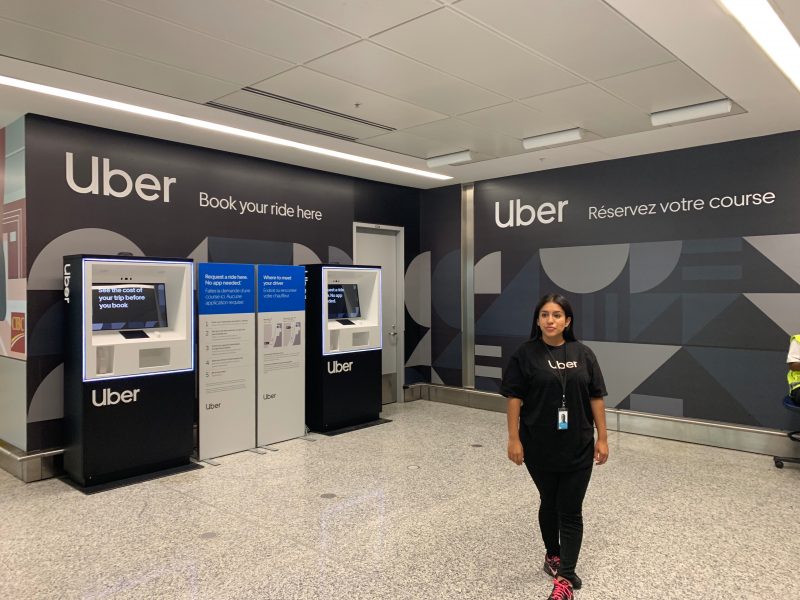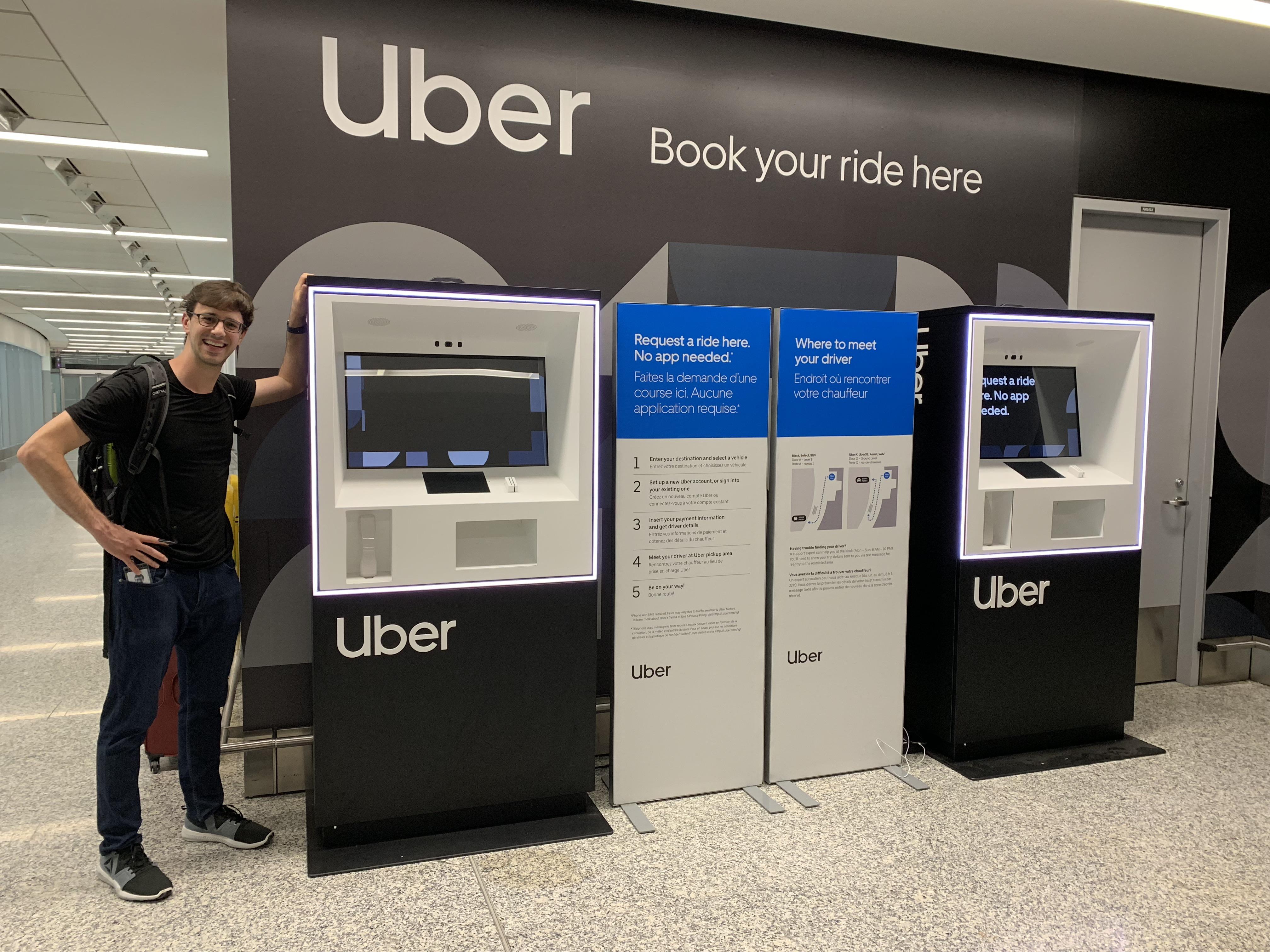- Uber rides are now bookable without a smartphone at Toronto’s Pearson International Airport.
- The company launched the kiosks earlier this month, with inspiration from similar ones at its driver hubs.
- There’s no word yet on future locations.
- Visit Business Insider’s homepage for more stories.
For the first 10 years, Uber was more or less useless to those without a phone. But that’s finally starting to change.

Earlier this month, the ride-hailing giant rolled out a kiosk at Toronto’s Pearson International Airport that allows passengers to to book a ride without a smartphone. The company says it’s designed to create greater access for travelers who might have a difficult time using the app because of language or tech issues.
Much of the technology in the kiosk is similar to what’s used in “green light” hubs, where the company on-boards drivers, one of the designers of the Toronto kiosk said on Twitter. Those same kiosks have also been used in malls in the San Francisco area.
Hardware breakdown: Top Monitor is a 32 inch LCD display; Bottom Tablet is a 2019 10.5 inch iPad Air; Swipe and chip credit card reader to the right of the tablet. Top monitor is powered by a small contained Dell PC which has an Electron app running. Tablet app is a native app; pic.twitter.com/VIXhWS6g8z
— Jon Kantrowitz (@jkantro) August 21, 2019
"One influence for the Uber kiosk came from arcade games, which, compared to a PC at home, creates a social environment inviting others to help the primary user," Anurag Agarwalla, head of Uber's innovation team for its technology services group, said in a blog post. "That attribute, along with a live support representative, brings in a human element we wanted to highlight."
There's no word yet on what locations might be next, but the company says it hopes to use them to increase access at high-volume venues.
More Uber news:
- Uber has proposed a new minimum wage for drivers after years of protests, but it comes with a catch
- Uber is opening massive new offices in Chicago and Dallas despite recent cost-cutting efforts
- Uber made nearly $500 million from a 'safe rides fee' - and that money went straight to the company's pockets

